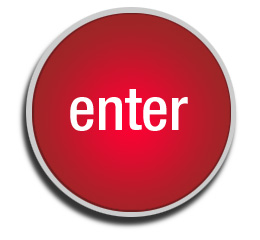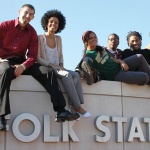
 |
|||
|
In much the same way that passports allow free travel to and from destinations around the world, DSU offers its students a “passport to life.” This passport will enable students to become contributing and productive members of society while gaining the confidence needed to take hold of opportunity, earn respect and build on their success. It all starts here, at DSU. With a self-contained campus that feels like a small town unto itself, DSU sits on a historic plot of Delaware land that has grown with the times. What began as a 100-acre campus is now a picturesque 400-acre campus abuzz with growth that still takes pride in its older buildings such as Loockerman Hall, a restored national historic landmark from the 1700s. Indeed, DSU is a unique mixture of the past, present and future. One can still unearth time capsules from nearly a century ago below buildings around campus. The Approaching Storm Marching Band belts out some of the latest popular tunes at sold-out football games in Alumni Stadium each fall. And some of the country’s most skilled researchers are discovering new innovations at DSU that have far-reaching future uses in the fields of medicine, military defense, agriculture and much more. There’s a place and interest at DSU for students who know exactly what path they want to follow. We also offer students the chance to explore unchartered territory—to discover and uncover their hidden talents while learning from some of the best in their prospective fields. Where will life take you? We invite you to begin your journey here at DSU—your passport to life. Online Admissions Application: http://www.desu.edu/admissions |
|||
| Quick Facts | |||
| Undergrad Population: 447 Graduate Population: 0 Student Body: Coed In State Tuition: $6829 Out of State Tuition: $10606 Room & Board: $9714 Applications Due: April 1st ($25) |
Conference: Mid-Eastern Athletic Conference Mascot: Hornets Accreditations: Online Classes: yes Percent Men: 37% Percent Women: 63% |
||
| Delaware State University Related Video | |||
|
|||
| News and Upcoming Events at Delaware State University | |||
| The Wall | |||
| Future spot for testimonials, comments, pictures, video | |||
| Majors Offered | |||
| AGRICULTURAL SCIENCE AND MANAGEMENT •Agricultural Business and Management, General •Agriculture, General ANIMAL SCIENCE AND CARE ART STUDIES BUSINESS AND MANAGEMENT COMPUTER SCIENCE AND ENGINEERING CONSERVATION AND RESOURCE MANAGEMENT CONSTRUCTION TRADES EDUCATION AND TEACHING ENGINEERING FAMILY AND SOCIAL WORK FINE ARTS HOSPITALITY LANDSCAPING AND HORTICULTURE LIBERAL ARTS MATHEMATICS MEDIA MEDICINE MUSIC NURSING AND EMERGENCY MEDICINE NUTRITION AND EXERCISE THERAPY SCIENCE SCIENCE AND LABORATORY TECHNICIAN SECURITY AND LAW ENFORCEMENT THERAPY AND COUNSELING TRANSPORTATION |
|||
| Unique Programs | |||
| Sports & Extra Curricular Activities | |||
| Choir, Choral Groups, Concert Band, Dance, Fraternities, Honors Program, Intramural Sports, Jazz Band, Marching Band, Pep Band, Radio Station, Sororities, Student Newspaper, Television Station | |||
| College History | |||
|
The State College for Colored Students, now known as Delaware State University, was established May 15, 1891 by the Delaware General Assembly under the provisions of the Morrill Act of 1890 by which land-grant colleges for Blacks came into existence in states maintaining separate educational facilities. Through the conservative and practical planning of the Board of Trustees appointed by Delaware Gov. Robert J. Reynolds, the College was launched upon its mission of education and public service on February 2, 1892. Five courses of study leading to a baccalaureate degree were offered: Agricultural, Chemical, Classical, Engineering, and Scientific. A Preparatory Department was established in 1893 for students who were not qualified to pursue a major course of study upon entrance. A three-year normal course leading to a teacher’s certificate was initiated in 1897. The College graduated its first class of degree candidates in May 1898. The normal course of study (teacher education) was extended to four years in 1911 and the Bachelor of Pedagogy degree was awarded to students upon satisfactory completion of the curriculum. In 1912, the courses of study were changed to Academic, Agricultural, Mechanic Arts and Domestic Science. The Bachelor of Pedagogy degree was awarded upon completion of the academic curriculum. A certificate of graduation was granted upon completion of the other courses of study. In the 1916-1917 school year, the Preparatory Department was phased out, a Model Grade School was established, and a high school diploma was granted on completion of a four-year course of study. In 1923, a Junior College Division was added. Four-year curricula in the Arts and Sciences, Elementary Education, Home Economics, Agriculture, and Industrial Arts were established in 1932. The College graduated its first class of bachelor-degree candidates completing one of these four-year courses of study in June 1934. In 1944, the College received provisional accreditation by the Middle States Commission on Higher Education. In 1947, the name of the institution was changed to “Delaware State College” by legislative action. In November 1949, the Middle States Commission on Higher Education revoked the accreditation of the institution. This was a severe blow to the prestige of the College. Strenuous efforts were exerted to maintain the existence of the College and to make it an accredited four-year land-grant institution. At the end of the 1951-52 school year, the High School Division was discontinued. In April 1957, the College was fully accredited by the Middle States Commission on Higher Education. The Middle States Commission on Higher Education in 1962, 1972, 1982, 1987, 1992, 1997 and 2002 reaffirmed this accreditation. Concurrently, the University achieved and maintained accreditation of its teacher education programs by the Delaware State Board of Education. On July 1, 1993, Delaware State College turned another chapter in its history when Gov. Thomas Carper signed a name change into law, thus renaming the College to Delaware State University. Since 1957, the University has grown in stature as a center for teaching, research, and public service. The purpose of the University has broadened in keeping with changing times. While recognizing its heritage, the University is among the top premier Historically Black Colleges and Universities (HBCU) in the country, while serving a diverse student population. Undergraduate studies are organized into six colleges that contain a total of 20 academic departments, which offer 64 bachelor degrees, 22 master degrees and five doctoral degrees. Accreditations include the National League of Nursing Accrediting Commission, the Commission on Collegiate Nursing Education, the Council on Social Work Education, the Accrediting Council for Programs in Hospitality Administration, the National Council for Accreditation of Teacher Education, as well as from the Commission on Accreditation for Dietetic Education. The University’s College of Business is nationally and internationally accredited by the Association to Advance Collegiate Schools of Business. The underpinning of the growth and development of Delaware State University has been the leadership of its ten presidents, including Wesley P. Webb (1891 – 1895), William C. Jason (1895 – 1923), Richard S. Grossley (1923 – 1942), Howard D. Gregg (1942 – 1949), Oscar J. Chapman (1950 – 1951), Jerome H. Holland (1953 – 1960), Luna I. Mishoe (1960 – 1987), William B. DeLauder (1987 – 2003), Allen L. Sessoms (2003 – 2008), and Harry L. Williams (November 2009-Present). Maurice E. Thomasson served as acting president from 1949 to 1950 and from 1951 to 1953. Claibourne D. Smith served as acting president from September 2008 to November 2009.As a result of their efforts, the University is well positioned to reach new levels of prestige and respect in the new millennium. As of the fall 2007, the University’s student enrollment has grown to 3,756 students. The University’s physical infrastructure has grown from its 1891 beginning as a 100-acre property with three buildings to a beautiful 400-acre pedestrian campus with over 50 buildings and four outdoor athletic fields. The University also has two farm properties in the Kenton and Smyrna areas, two University satellite sites in Wilmington and Georgetown, and its Airway Science Program maintains it fleet of planes and base of operation at the Delaware Air Park in Cheswold |
|||
You can check out the latest casting calls and Entertainment News by clicking: Click Here
Click the logo below to go to the Home Page of the Website
Click the logo below to follow ETInside on Twitter
Click the logo below to follow ETInside on Facebook
Click the logo below to follow ETInside on Instagram
Click the logo below to follow ETInside on Pinterest
Click the logo below to follow ETInside on Medium













